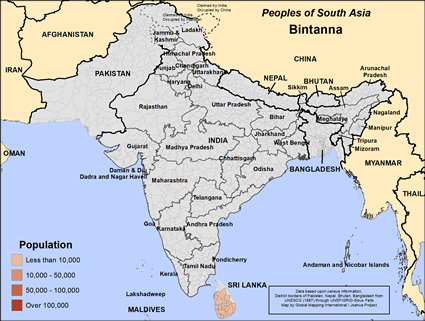The Bintanna are a Sinhala-speaking community historically associated with agriculture and village-level service roles in Sri Lanka. Their identity is shaped by generations of life in rural environments where rice farming, seasonal labor, and community-based agricultural cooperation formed the foundation of economic and social life. The Sinhala language is central not only to daily communication but also to cultural expression, storytelling, and religious ritual. While their historical roots are tied to traditional village structures, modern economic changes have led some Bintanna families to seek work in urban centers or abroad, contributing to both cultural continuity and adaptation.
Most Bintanna families live in close-knit rural or semi-rural communities where daily life revolves around family responsibilities, agricultural schedules, and local community events. Rice farming, small garden cultivation, and daily wage labor provide primary income. Traditional crafts and seasonal trade sometimes supplement these livelihoods. Social relationships tend to be strong, with extended families supporting one another in work, celebrations, and times of hardship. Younger generations, however, increasingly attend government schools and look toward jobs in cities, which can create tension between tradition and modern aspirations. Community festivals, shared meals, hospitality toward guests, and respect for elders continue to shape their cultural identity.
The Bintanna community traditionally practices Theravada Buddhism, which shapes their worldview, ethics, family customs, and community life. Temples, monks, and Buddhist rituals hold significant importance, and acts of merit such as offerings, sponsoring monks' meals, and participating in temple activities are seen as ways to cultivate moral strength and improve one's future. The concept of salvation is connected to escaping the cycle of rebirth through accumulating merit and pursuing moral discipline. While some may have heard of Christianity, it is often viewed as outside their cultural identity, and many have not encountered the message of Jesus in a relational or culturally meaningful way.
Economic uncertainty affects many Bintanna households, particularly in agricultural areas that experience drought, fluctuating crop prices, or limited land access. Access to education and stable employment is important for young adults seeking to support their families. Emotional and spiritual support is valuable for individuals navigating the pressures of modernization while trying to honor family traditions. Spiritually, there is a need for opportunities to encounter the gospel in ways that are patient, respectful, and rooted in authentic friendships. For those who come to faith in Christ, supportive fellowships and committed mentors are vital for personal growth and resilience.
Pray for stable livelihoods, good harvests, and access to sustainable employment for Bintanna families. Ask God to bless their communities with education, health, and strengthened family relationships. Pray that the gospel of Jesus would be shared among them through genuine friendships characterized by humility and compassion. Intercede for workers who are willing to live among the Bintanna, learn their language and culture, and model Christ's love in everyday life. Pray that those who respond to the message of Christ would grow strong in faith, form supportive communities of believers, and eventually join the global discipleship force, sharing Christ's love with others near and far.
Scripture Prayers for the Bintanna in Sri Lanka.
Linguistic and cultural descriptions of Sinhala-speaking rural communities
Historical research on agricultural caste and village life in Sri Lanka
Local ethnographic field studies and oral histories
| Profile Source: Joshua Project |











